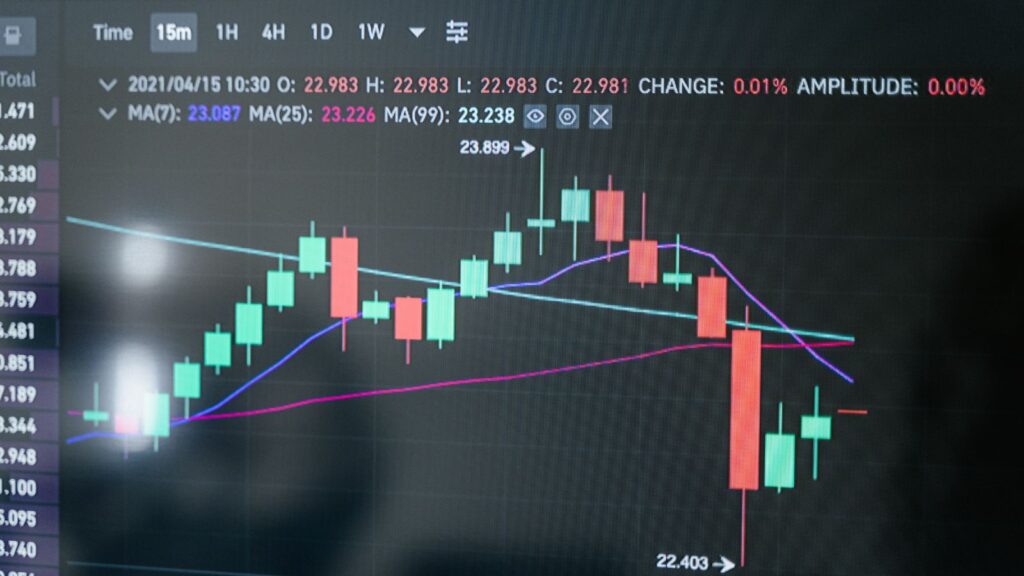Proprietary trading, or prop trading, offers a compelling entry point for beginners in the financial markets. Rather than investing personal capital, new traders gain access to a firm’s funds to execute trades, substantially reducing personal financial risk. This arrangement allows beginners to focus on developing trading skills without the pressure of potentially losing their life savings.
Prop trading firms provide beginners with significant capital, advanced trading technologies, and supportive communities that would otherwise be inaccessible to individual traders. These resources create an environment where new traders can learn market dynamics while having the opportunity to generate meaningful profits. Many firms also provide educational resources and mentorship from experienced traders who can guide newcomers through complex trading strategies helping them refine their skills in a real-world setting. By participating in these programs, beginners can gain valuable insights into professional trading without the typical financial strain. To find the best funding prop firm, it’s important to look for one that provides not only capital but also the right blend of support, education, and mentorship. This creates an ideal environment for growth, giving new traders the chance to thrive while minimizing risk.
Key Takeaways
- Prop trading allows beginners to trade with firm capital instead of personal funds, significantly reducing financial risk.
- Traders gain access to professional-grade tools, technologies and educational resources not typically available to retail traders.
- Prop firms offer scalable capital allocation based on performance, creating opportunities for substantial income growth.
Understanding Prop Trading And Its Advantages
Proprietary trading represents a significant opportunity for new traders to enter financial markets with reduced personal risk while accessing substantial capital. This arrangement allows beginners to develop their skills within established frameworks that offer both financial backing and professional development.

Diving Into Proprietary Trading
Proprietary trading, commonly known as “prop trading,” occurs when financial firms or banks trade stocks, commodities, currencies, or other financial instruments with their own money rather than clients’ funds. In this model, traders use the firm’s capital to execute trades, eliminating the need for substantial personal investment.
For beginners, prop trading firms provide essential training programs that teach market analysis, risk management, and trading psychology. These firms typically have established trading desks with advanced technologies and platforms that would be prohibitively expensive for individual traders.
The structure also offers beginners exposure to experienced traders and mentors who can accelerate the learning process. Most firms implement strict risk parameters to protect their capital while allowing new traders to gain practical experience.
The Appeal Of Various Markets And Instruments
Prop trading opens doors to diverse financial markets that might otherwise be inaccessible to beginners. Traders can explore stocks, forex, futures, options, and commodities without needing separate accounts or meeting high capital requirements for each market.
This diversity allows new traders to discover which instruments best match their skills and risk tolerance. For example, some might excel in the volatility of cryptocurrency markets, while others may prefer the structured environment of futures trading.
Most prop firms provide specialized trading platforms with real-time data feeds, advanced charting tools, and execution capabilities across multiple markets. This technological infrastructure would typically cost thousands of dollars for independent traders to replicate.
Profit Sharing And Capital Usage
The financial arrangement of prop trading represents one of its most compelling advantages for beginners. Traders gain access to substantially more capital than they could personally invest, creating potential for greater profits without equivalent personal risk.
Typical profit-sharing arrangements range from 50/50 to 80/20 (trader/firm), with performance determining the split. High-performing traders can negotiate more favourable terms as they demonstrate consistent profitability.
Unlike traditional trading where losses directly impact personal finances, prop trading often limits a trader’s downside to a much smaller “seat fee” or deposit. This reduced financial pressure allows beginners to focus on developing proper trading techniques rather than worrying about significant personal losses.
Many firms implement tiered capital allocation systems where traders can access increasingly larger amounts as they demonstrate consistent performance and responsible risk management.
Technical Skills And Support For Beginners
Proprietary trading firms offer comprehensive technical training and support systems designed specifically for new traders. These resources aim to bridge knowledge gaps and accelerate trading proficiency through structured learning environments.
Strategies, Analysis And Techniques
Prop firms provide beginners with access to proven trading strategies that might otherwise take years to develop independently. New traders learn essential technical analysis skills, including chart pattern recognition and indicator usage tailored to different market conditions.
Many firms offer customized algorithmic trading platforms that simplify complex market calculations. These tools help traders identify potential entry and exit points with greater precision than manual methods.
Beginners gain experience with both day trading techniques for short-term opportunities and position trading approaches for longer horizons. This balanced exposure helps them determine their natural trading style.
Prop traders receive training on interpreting market volatility signals and adapting strategies accordingly. This dynamic approach proves valuable during unpredictable market shifts.
Risk Management And Trading Goals
Risk management training forms the cornerstone of prop trading education. Beginners learn to implement stop-loss strategies that protect capital while allowing profitable trades room to develop.
Prop firms establish clear position sizing guidelines based on a trader’s experience level and risk tolerance. These parameters prevent beginners from taking outsized risks that could deplete their trading accounts.
Traders receive guidance on setting realistic profit targets and managing expectations. This approach helps prevent emotional decision-making when trades move in either direction.
Most prop firms implement sophisticated risk monitoring systems that track traders’ activities and provide real-time feedback. These safeguards help beginners maintain discipline even during stressful market periods.

Mentorship And Educational Support
Experienced prop traders often serve as mentors, providing personalized guidance based on their market expertise. This apprenticeship model accelerates learning through direct observation of successful trading practices.
Regular performance reviews help identify specific strengths and improvement areas. These structured evaluations create clear development pathways for beginners.
Many prop trading firms host workshops covering fundamental analysis concepts like economic indicators, earnings reports, and sector trends. This knowledge complements technical skills by providing context for price movements.
Educational resources typically include recorded trading sessions, webinars, and searchable knowledge bases. These self-paced materials allow beginners to review concepts until fully understood.
Trading simulations in realistic market conditions let beginners practice without financial risk. This safe environment builds confidence before advancing to live trading with firm capital.
Conclusion
Prop trading offers beginners a valuable gateway into financial markets without requiring substantial personal capital. The combination of funded accounts, professional tools, and mentorship creates an environment where new traders can develop skills while managing reduced personal risk.
Trading with a prop firm allows beginners to focus on strategy development rather than worrying about losing their life savings. The structure of most prop firms, with their profit-sharing models, aligns the interests of both parties and creates motivation for success.
For those willing to follow rules and develop disciplined approaches, prop trading can be an effective path toward a trading career. However, beginners should carefully evaluate each firm’s requirements, profit splits, and reputation before committing to ensure they find the right fit for their trading journey.



